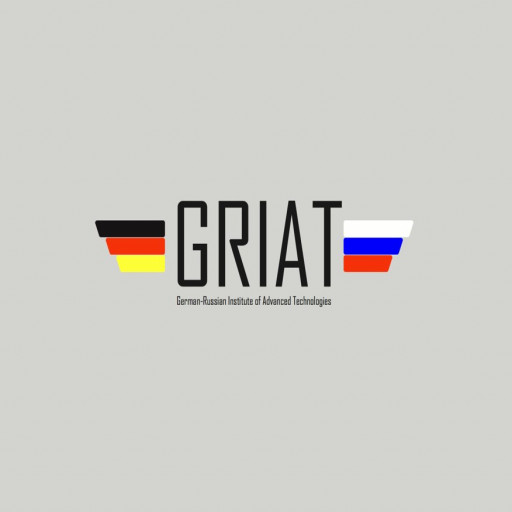Photos of university
Intelligent Data Processing is a comprehensive Master's degree program offered by the German-Russian Institute of Advanced Technologies, designed to prepare students for the growing demands of modern data-driven industries. This program provides an in-depth understanding of advanced data analysis techniques, machine learning algorithms, artificial intelligence, big data technologies, and their applications across various fields such as industry, healthcare, finance, and information technology. Through a multidisciplinary curriculum, students gain both theoretical knowledge and practical skills necessary to develop intelligent data processing solutions, optimize complex systems, and contribute to technological innovation. The program emphasizes hands-on training with real-world datasets and projects, fostering critical thinking and problem-solving abilities in an international academic environment. Graduates of this course will be equipped to work in roles such as data scientists, machine learning engineers, data analysts, and AI specialists, tackling complex challenges using state-of-the-art tools and methodologies. The program also collaborates with industry partners and research centers, offering students internship opportunities and exposure to cutting-edge developments in intelligent data processing. Our goal is to cultivate highly qualified specialists capable of leading the digital transformation across multiple sectors in Russia and Germany, promoting international collaboration and technological advancement. With a strong focus on both theoretical foundations and practical applications, the Intelligent Data Processing program prepares students to contribute meaningfully to the evolving landscape of information technology and data science, ensuring they are well-positioned for successful careers in this rapidly expanding field.
Main Subjects
- Artificial Neural Networks
- Document and Content Analysis
- Embedded Intelligence
- Computer Systems (Fundamentals of Embedded Systems and Architecture of parallel computing systems)
- Concurrency Theory and Parallel Computing
- Machine Learning (Foundation and Applications, Recent Methods and Technologies)
- Computer Vision
- Nonlinear Optimization
- Software Engineering
- Previous Education: Bachelor of Science, Bachelor of Engineering in the appropriate program or related field
- Average BSc Mark - 4.0
- Motivation for your bachelor thesis: the problem that was solved, tasks, algorithms, models and methods, mathematical background; characteristics of the project, complexity, which difficulties were solved and how.
- A short story about why you need this master's program. What are your expectations? Why did you choose the part-nership between KNRTU-KAI and German university? How do you see yourself in the future? Personal interests, priorities and plans, if you relate them with the MSc program.
- Personal achievements and awards, including academic. Letters of recommendation. (optional)
- For diploma obtained outside Russia, additional consul-tation with German side is required.
- Basic knowledge in:
Math field:
- Calculus
- Linear algebra
- Discrete mathematics
- Theory of probability and mathematical statistics
- Average mark for all math courses at least 4.
IT-field:
- Data structures and algorithms
- Practical skills of programming in any high-level programming language (preferable: skills in object-oriented language)
- General knowledge in databases, networks and operating systems
- More than 60 CP during bachelor studies had to be courses from the IT field
GRIAT students can benefit from grants to study and train abroad. They can apply for a number of scholarships offered by the government of Tatarstan Republic, GRIAT industry partners and the European commission program for education and training. These scholarships mostly cover travel, stay, costs and medical insurance of GRIAT students during their academic semester at a German partner-university.
Recently, all of GRIAT students have used an opportunity to study abroad thanks to different international grants and programs:
- Algarysh grant provided by the Government of the Republic of Tatarstan;
- European international exchange program Erasmus+;
- SIEMENS scholarship;
- Russian educational grant program;
- Scholarship provided by the President of Tatarstan.
Intelligent Data Processing is a specialized Master's degree program offered by the German-Russian Institute of Advanced Technologies. This program is designed to prepare students for the growing field of data science, machine learning, artificial intelligence, and computational data analysis. The curriculum combines theoretical foundations with practical applications, enabling graduates to develop innovative solutions for complex data problems across various industries such as finance, healthcare, manufacturing, and telecommunications. Students will learn advanced techniques in data mining, statistical analysis, algorithm design, and big data management, equipping them with the skills necessary to process and interpret vast amounts of information efficiently. The program emphasizes interdisciplinary knowledge, integrating computer science, mathematics, and domain-specific expertise to foster a comprehensive understanding of intelligent data systems. Through coursework, project work, and internships, students will engage with real-world challenges, developing software prototypes, analytical models, and decision support tools. The program's faculty includes leading researchers and industry experts from both Germany and Russia, ensuring high-quality instruction and exposure to international standards. Graduates of the program will be prepared for careers as data scientists, machine learning engineers, AI developers, and data analysts. They will also have opportunities for PhD study or research positions in academia and research institutions. The program duration typically spans two years, with a curriculum structure designed to build technical competencies progressively while providing opportunities for specialization in areas such as deep learning, natural language processing, image analysis, or bioinformatics. The institute collaborates with industrial partners and research laboratories, offering students access to cutting-edge research facilities and project opportunities. Overall, the Intelligent Data Processing program aims to produce highly skilled professionals capable of contributing to the digital transformation of industries and advancing the capabilities of intelligent systems in various sectors.











